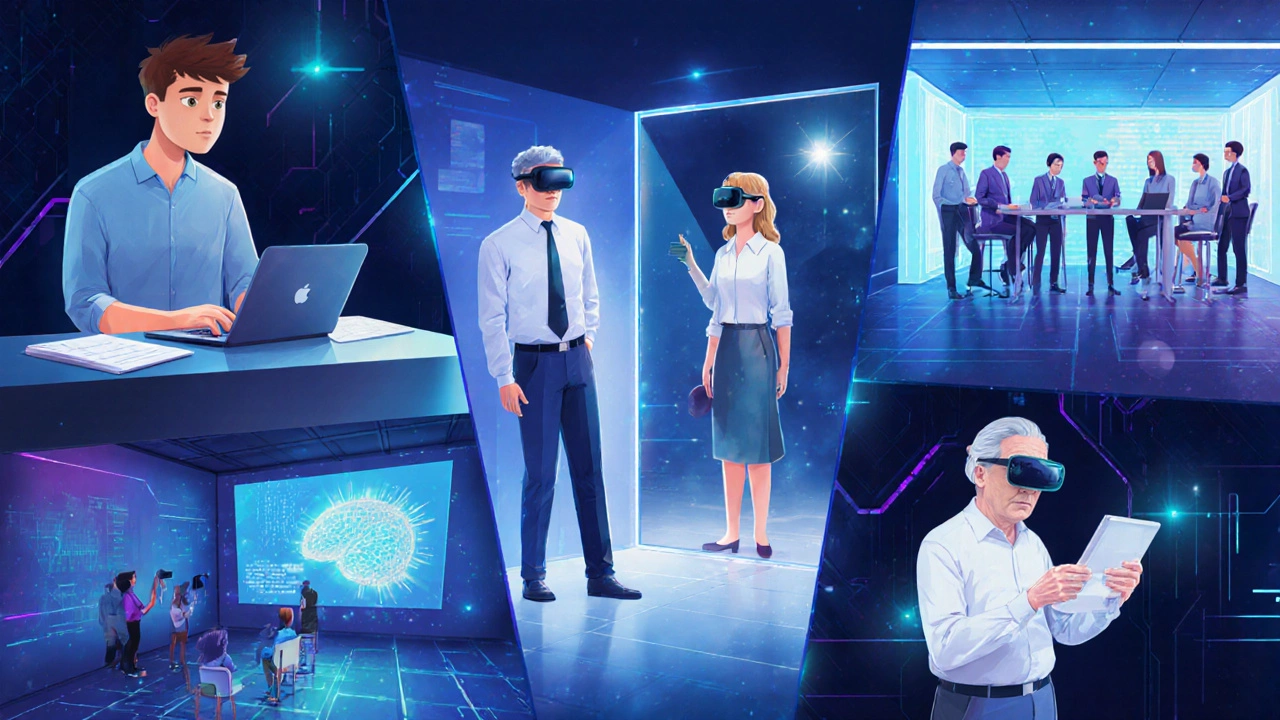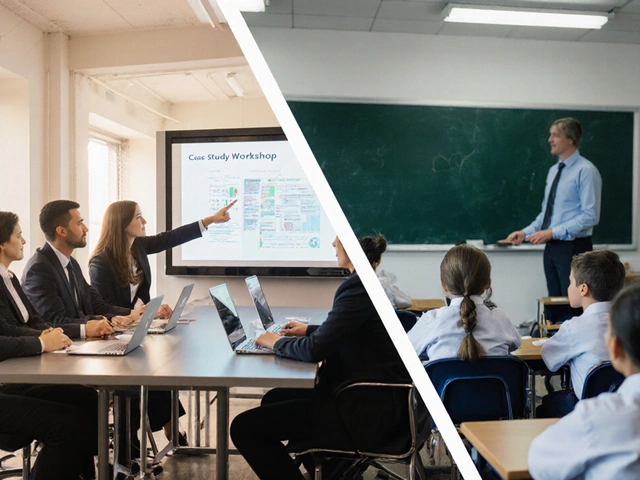Ever wondered why a corporate workshop feels so different from a school classroom? The answer lies in the adult learning approach, a set of ideas that shape how grown‑ups absorb new knowledge.
Adult Learning is the process by which adults acquire, retain, and apply knowledge, skills, attitudes, or values, usually in self‑directed or experience‑based contexts. Unlike traditional pedagogy aimed at children, adult learning assumes learners bring a rich reservoir of experience, are motivated by real‑world problems, and prefer practical relevance.
Andragogy is the theory that outlines how adults learn best, popularized by MalcolmKnowles in the 1970s. While "pedagogy" focuses on teaching children, "andragogy" flips the script: adults take charge of their learning journey.
Core Assumptions of Adult Learning
Knowles identified five assumptions that still guide modern programs:
| Assumption | What It Means |
|---|---|
| Self‑Concept | Adults see themselves as self‑directed. |
| Experience | Past experiences are a valuable learning resource. |
| Readiness | Learning aligns with real‑life roles and tasks. |
| Orientation | Problem‑centered rather than subject‑centered. |
| Motivation | Internal drivers (career growth, personal fulfillment) outweigh external rewards. |
Major Theories Shaping Adult Learning
- Self‑Directed Learning is a process where individuals take the initiative to diagnose their learning needs, set goals, locate resources, and evaluate outcomes. It thrives in online courses, mentorship programs, and workplace upskilling.
- Transformative Learning is the experience of critical reflection that leads to a profound shift in perspective, often triggered by disorienting dilemmas. Think of a manager who re‑evaluates leadership style after a failed project.
- Experiential Learning is learning through concrete experience, reflective observation, abstract conceptualisation, and active experimentation (Kolb’s cycle). Workshops with simulations exemplify this cycle.
- Lifelong Learning is the ongoing, voluntary, and self‑initiated pursuit of knowledge for personal or professional reasons. It underpins the modern gig economy where skills must evolve continuously.
Applying Adult Learning Principles in Real‑World Settings
When you design a training session for seasoned nurses, the adult learning lens changes everything. Instead of lecturing about anatomy, you might start with a case study where participants diagnose a patient, then guide them to reflect on the decision‑making process. This respects the self‑concept and experience assumptions while delivering problem‑centered content.
In a corporate setting, a digital learning platform that lets employees pick modules, set personal milestones, and track progress embodies self‑directed learning. Adding discussion forums creates a Community of Practice where shared experience fuels deeper understanding.
Design Tips for Effective Adult Learning Experiences
- Start with relevance. Pose a real challenge the learner faces; this triggers readiness.
- Leverage experience. Use peer‑sharing, role‑plays, or reflective journals to turn personal stories into learning assets.
- Offer choice. Give multiple pathways-videos, podcasts, articles-so learners control the pace.
- Embed reflection. After each activity, ask “What did you learn? How will you apply it?” to spark transformative insight.
- Use authentic assessment. Simulations, project‑based tasks, and performance metrics align with adult orientation toward problem‑solving.
Common Pitfalls and How to Avoid Them
Over‑loading with theory. Adults lose interest when sessions become lecture‑heavy. Balance theory with immediate practice.
Ignoring prior knowledge. Assuming novices can start from scratch wastes valuable experience. Conduct a quick skills inventory at the start.
One‑size‑fits‑all delivery. Learning styles differ-visual, auditory, kinesthetic. Provide varied content formats, especially in Digital Learning environments where multimedia is easy to integrate.

Resources and Tools for Modern Adult Learners
- MOOCs (Massive Open Online Courses): Coursera, edX, and FutureLearn host thousands of self‑paced modules.
- Micro‑learning apps: Duolingo for languages, LinkedIn Learning for professional skills, both support bite‑size, goal‑oriented learning.
- Reflective journals: Tools like Day One or simple Google Docs help capture insights after each learning episode.
- Community platforms: Slack channels, Reddit sub‑forums, and specialized forums (e.g., ResearchGate for academics) foster peer feedback.
- Assessment tools: Quizlet for flashcards, Kahoot! for interactive quizzes, and SurveyMonkey for self‑evaluation surveys.
Quick Checklist for Planning Adult Learning
- Identify the real‑world problem the learner wants to solve.
- Map existing experience that can be used as a learning resource.
- Choose delivery methods that allow autonomy (online modules, self‑paced reading).
- Integrate reflective pauses after each activity.
- Design authentic assessments that mirror workplace or life tasks.
Frequently Asked Questions
What distinguishes adult learning from child‑focused education?
Adult learning assumes learners are self‑directed, bring prior experience, seek practical relevance, and are driven more by internal motivations than external rewards.
How can I apply the five assumptions of adult learning in a short workshop?
Start with a real case study (problem‑centered), invite participants to share similar experiences (experience), let them choose how to explore solutions (self‑concept), link the activity to their current roles (readiness), and highlight personal growth benefits (motivation).
Is self‑directed learning the same as independent study?
They overlap, but self‑directed learning emphasizes the whole process-identifying needs, finding resources, and evaluating outcomes-while independent study often focuses just on studying alone.
What role does technology play in adult learning today?
Technology enables flexible access, multimedia content, and data‑driven feedback. Platforms like LMSs, MOOCs, and micro‑learning apps let adults learn at their own pace and on any device.
Can adult learning principles be used in informal settings like community groups?
Absolutely. Community workshops, book clubs, and volunteer training all benefit from relevance, experiential activities, and opportunities for reflection-core adult learning ideas.






